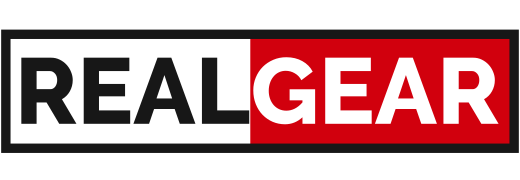The enemy swoops in, takes you out, and hits you with that cheeky “gg” .
It’s not just good internet speed you need to prevent such scenarios from happening, but also low latency, ping, jitters, and packet loss for a smooth gaming experience. Let’s start from the basics:
What Is Good Internet Speed for Gaming?
An internet speed of 5-10 Mbps is usually sufficient for online multiplayer gaming. If you’re considering cloud gaming, the requirement increases to 25 Mbps. But it’s not just about speed when picking an internet connection for gaming. You also have to consider latency, ping, jitter, and packet loss for a solid online multiplayer gaming experience.
Let’s take a closer look at how it all falls into place:
How to Get the Best Internet Speed for Gaming?
To get the best internet speed for gaming, start by choosing the right Internet Service Provider (ISP). ISPs offer internet through four main ways: Fiber optic, cable, DSL, and wireless. Go for a fiber optic connection from the highest-rated ISP.
Fiber optic is the best choice for gaming, followed by cable and DSL, with wireless being the least preferable. Fiber optic uses light signals for data and offers the lowest ping and latency on average.
Cable internet uses TV cables and is the second-best choice. Then comes DSL internet, which uses phone wiring but with slower data speeds and higher pings and latencies (DSL could be a viable option if you still have an operational landline phone).
Lastly, wireless internet, whether from satellite or cellular networks, is suitable for remote areas but easily affected by environmental interference and weather conditions. The speed and latency of wireless connections depend on how far the signal travels. Unlike wired connections, wireless can be very unpredictable and relies on multiple external factors.
Here’s a quick list of some of the best ISPs in the U.S and how they stack up against each other:
| ISP | Connection Type | Ideal Number of Users | Latency (ms) | Download Speed (Mbps) |
| AT&T | Fiber, Cable, Wireless | 2 – 10 | Low | 10 Mbps – 1 Gbps |
| Xfinity | Fiber, Cable | 4 – 12 | Moderate | 75 Mbps – 1.2 Gbps |
| Verizon Fios | Fiber | 6 – 10 | Low | 300 Mbps – 1 Gbps |
| Google Fiber | Fiber | 10 – 100 | Low | 1 Gbps – 8 Gbps |
| Frontier | Fiber, DSL | 3 – 12 | Low | 50 Mbps – 1 Gbps |
| T-Mobile | Cellular 5G | 3 – 5 | High | 72 Mbps – 245 Mbps |
| Spectrum | Cable | 6 – 10 | Moderate | 300 Mbps – 1 Gbps |
Before subscribing to one of the ISPs mentioned above, consider the following factors before making the final decision.
Download speed
Download speed is the amount of data your internet connection can transfer per second. The faster it is, the quicker you can download games, stream high-quality content, and have a fast internet experience.
In online gaming, download speeds are crucial because they allow your computer to fetch data from other players in the match, like their character appearance, their position on the map, the gear and weapons they have, and more.
Upload speed
Upload speeds are the opposite of download speeds. They show how much data your ISP lets you send to the web. Usually, upload speeds are much slower than download speeds.
Many ISPs don’t even mention upload speeds because they’re not as vital as download speeds. However, upload speeds matter when you want to post videos on YouTube, for example, or upload files to the cloud. In online multiplayer gaming, a decent upload speed helps your PC or console send your in-game player’s data to the game server hosting the match.
Latency
Latency is the brief delay, measured in milliseconds (ms), that data takes to travel from your PC or console to the local ISP.
When your internet connection has higher latency, there’s a longer delay between when you press a button to shoot a gun, for example, and when the server hosting the game recognizes it. Needless to say, high latency ruins your gaming experience by putting you at a disadvantage.
Ping
Ping measures the time it takes for a data packet to travel from your device to the server and back to your device. It’s the primary way to measure in-game latency in online multiplayer gaming. It shows the delay between your PC or console and the game server you’re connecting to. Like latency, lower ping means a better online gaming experience.
Jitters
The rate at which data is transferred is measured per second. The transfer rate your ISP mentions is just an average of multiple bursts of data every second.
Ideally, these bursts should have minimal time differences between them. However, occasionally, your ISP sends data with significant time variations between each burst, called jitter.
Although jitters don’t cause major issues for activities like surfing the internet or streaming content, it can be problematic for gaming, where data consistency is crucial to keep everything running smoothly.
Packet loss
All IoT (Internet of Things) devices, like smart appliances, fitness trackers, sensors, and internet routers communicate using data packets, which are small bursts of information sent back and forth between different devices.
When a transmitting device sends a data packet that isn’t received by the server or the receiving device, it’s called packet loss. In simple terms, packet loss is the loss of data that can happen due to many reasons.
In online multiplayer gaming, packet loss means the server hosting the match won’t recognize your player’s position. This means your character won’t move from the perspective of other players, leaving you vulnerable. So, it’s best to avoid packet loss.
How to Get Good Internet Speed for Competitive Gaming
Here are some methods to optimize your internet connection for competitive online gaming.
Go for Wired Broadband
For the ultimate gaming experience, choose an Internet Service Provider (ISP) with wired broadband support. This is because fiber optic cables send data using light signals and are made of small, bendable strands of glass or plastic covered with insulation.
Laser diodes are used to send data in binary code through these cables. Because of this, fiber optic cables are not easily affected by environmental factors and can transfer data incredibly fast—near the speed of light.
This is quite different from wireless internet, which uses electromagnetic waves that environmental interference can easily disrupt. So, if you want a smooth gaming experience without interruptions, wired broadband with fiber optic cables is the way to go!
Use Ethernet Ports
Next, make sure that you use the ethernet ports on your PC or console instead of Wi-Fi. While Wi-Fi has its uses and is convenient, its signals are prone to environmental interferences, unlike ethernet cables that transfer data via electric pulses and are insulated for minimal environmental interferences.
Consider a Powerline Adapter
Consider a powerline adapter if you don’t want to deal with the hassle of ethernet cable wiring but still want good gaming performance. Powerline adapters use your home’s electrical wiring to transfer data from point A to point B with much lower latency and packet loss than Wi-Fi.
Powerline adapters strike the perfect balance between Wi-Fi and Ethernet and are a convenient ‘hybrid’ solution that offers the best of both worlds.
If you’re interested in a powerline adapter, remember to check out our comprehensive look at the best powerline adapters for gaming.
Choose the Right Wi-Fi Router
If you can’t use ethernet or a powerline adapter for some reason, try to optimize your router for gaming. First, ensure that the router you’re about to buy is rated for your internet speed. Here, it’s worth noting that Wi-Fi routers’ advertised bandwidth is merely theoretical, and, in practice, you’ll likely be able to achieve 75-85% of that bandwidth.
So, for example, if you have 500 Mbps internet, choose a Wi-Fi router whose main 5 GHz or 6 GHz band is rated to provide for at least 750 Mbps of bandwidth. Additionally, ensure that the router you’re about to buy supports the latest Wi-Fi technologies, namely beamforming and MU-MIMO, with long-range coverage.
Aside from that, be sure to place your Wi-Fi router in the same room as your PC or gaming console, preferably with a direct line of sight with the Wi-Fi router, and connect as few Wi-Fi devices with the router as possible to prevent network congestion.
If you need help determining which router to get, check out our comprehensive look at the best long-range Wi-Fi routers.
Good Internet Speeds Based on Platform
You might wonder how much internet speed you need for your gaming platform. Interestingly, games have consistent bandwidth requirements across different platforms. So, whether you’re on a PS5, Xbox, Nintendo, or PC, the internet speed requirements are pretty much the same across all platforms.
So, if you’re looking for a good gaming experience, we recommend you opt for an internet connection with a download speed of at least 50 Mbps or more. Also, ensure that your ISP has good latency, minimal packet loss, and no ping and jitter issues for a seamless online multiplayer gaming experience.
Additionally, if you’re into AAA games, aim for a 100 Mbps internet speed. Modern AAA games can be big, with download sizes reaching 150 GB or even more. Downloading such a large game on a 50 Mbps connection would take over 7 hours to finish. A 100 Mbps speed ensures a much faster and smoother experience when downloading these large game files.
FAQ section
What is the Best Internet Speed for Gaming and Streaming?
Go for a 100-200 mbps package to game and stream simultaneously.
Is Xfinity 200 Mbps Good for Gaming?
Absolutely. Xfinity’s 200 Mbps plan is excellent for online multiplayer gaming. With this package, you enjoy impressive download speeds and benefit from low latency and ping. It’s a fantastic option for gamers who want a speedy and reliable internet connection.
What Is Considered Slow Internet?
The American Federal Communications Commission (FCC) recommends a minimum of 25 Mbps for online gaming. However, you’d need to wait a long time to download modern games. Recent AAA games might take over half a day to download at this rate. So, if you’re into gaming, go for bigger download speed packages to save time and enjoy uninterrupted gameplay.
Is 100 Mbps Fast for Xbox?
Absolutely, a 100 Mbps internet speed is really fast and perfectly suitable for online multiplayer gaming on Xbox consoles, including Xbox Cloud Gaming. 100 Mbps (Megabits Per Second) equates to 12.5 MB/s (Megabytes Per Second), which means you can download super heavy games, such as the Halo Master Chief Collection, which stands at 134GB, in just over 3 hours.
Conclusion
In online gaming, a swift and stable internet connection can mean the difference between victory and frustration. Optimal internet speed, around 50 Mbps, forms the foundation, but understanding latency, ping, jitters, and packet loss is key. Fiber optic leads the pack, offering lightning-fast data transmission. Embracing wired broadband, Ethernet ports, or innovative solutions like powerline adapters minimizes lag, providing a seamless gaming experience.
The right Wi-Fi router, strategically placed and equipped with advanced technologies, ensures uninterrupted gameplay. Your internet connection isn’t just a service; it’s your lifeline to immersive adventures.
May your latency be low, your victory swift. Game on!

